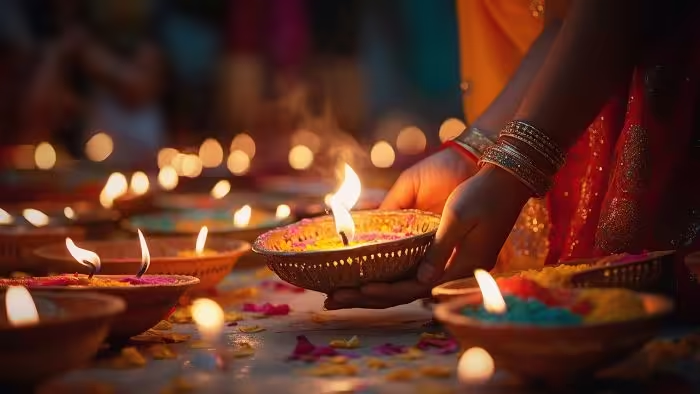
Diwali: A festival of lights and joy
Celebrated on 20th and 21st of this year, Diwali, also known as Deepavali, is one of India’s most cherished and vibrant festivals, celebrated across religions and regions. It symbolizes the triumph of light over darkness, good over evil, and knowledge over ignorance. Cultural Significance - Diwali commemorates Lord Rama’s return to Ayodhya after defeating the demon king Ravana, marking a victory of righteousness. - It also honors Goddess Lakshmi, the deity of wealth and prosperity, with elaborate Lakshmi Puja rituals. Five Days of Celebration 1. Dhanteras – Marks the beginning with auspicious purchases and home cleaning. 2. Choti Diwali – Homes are decorated with diyas and rangoli. 3. Main Diwali Day – Families perform Lakshmi Puja and burst fireworks. 4. Govardhan Puja – Celebrates Krishna lifting Govardhan Hill. 5. Bhai Dooj – Honors the bond between brothers and sisters. A Universal Festival - Diwali transcends religious boundaries: - Jains celebrate Lord Mahavira’s nirvana. - Sikhs observe Bandi Chhor Divas. - Buddhists embrace its message of enlightenment. Modern Celebrations - Streets and homes glow with oil lamps, candles, and electric lights. - Markets bustle with sweets, gifts, and festive wear. - Fireworks light up the night sky, creating a magical atmosphere. Diwali is more than a festival—it’s a celebration of hope, unity, and renewal. Whether in India or across the globe, it brings people together in joy and reflection.
